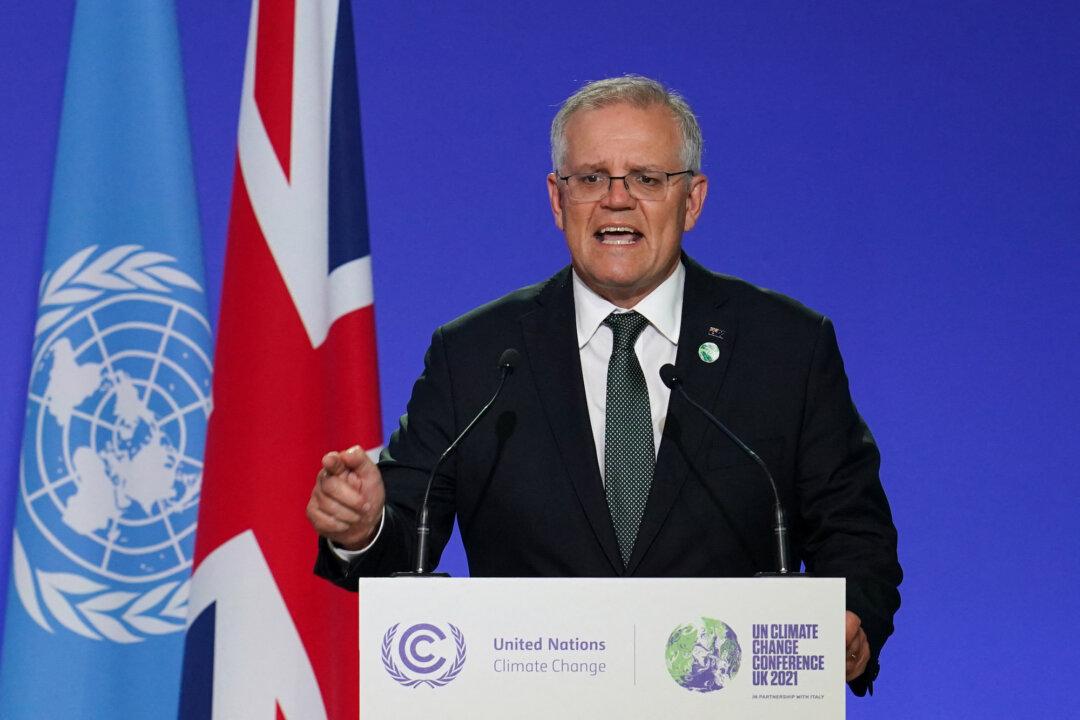Australian Prime Minister Scott Morrison has told world leaders that the swift invention of COVID-19 vaccines has provided cause for optimism that scientists and other experts can invent the technological solutions needed to combat climate change by achieving net zero carbon emissions by 2050.
Addressing the COP26 summit in Glasgow early on Tuesday, Australian time, Morrison said the challenge to chart the path to net zero would be met by “those who are, frankly, largely not in this room.”





